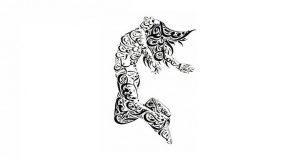Interview with S by AK ’21.
S is from south Florida where she grew up in a very tight knit Palestinian family. Her hometown’s demographics are predominantly Jewish. She sometimes noticed tensions between the culture of her family and of her town, but accepted it as a part of life. She was first introduced to the concept of the “Palestinian diaspora” and her status as a member of it when she was a college student. While at college, she met other Arabs and Palestinians who had an impact on her development and self awareness. In her interview, she also described her interactions with progressive Jews as influential. After graduating, S has continued exploring the concept of the diaspora further, questioning both the term “diaspora” itself and what it means for her identity. S is currently pursuing her interest in documentary work and film festival programming.
Transcript:
“My grandmother was Lebanese and my grandfather when he was a young boy, around ten or so, his family had to leave Haifa, or the village by Haifa in Palestine where they were, and the story that’s always told to me is that his family had to go into hiding. He ended up in Senegal and that’s where he met my grandmother. Both of my parents were born and raised in Dakar Senegal.
And my dad ended up coming to Florida. Ever since then my family moved around the state and I was born and raised along with my other three siblings in south Florida in Boca Raton, which is one of the concentratedly Jewish towns in the U.S.
My brother and I took very different academic paths, in eighth grade, if you want to continue to be in these advanced science classes, then you must start taking classes in the gifted program. I remember that the first year that I took that science class, I was in eighth grade, and I walked into the room. It was almost entirely white, Jewish students that had known each other since second grade or before and had been in this program together in a separate building, with separate teachers, with separate resources. I remember it was very clear to me that I felt like I was walking into their space. There I would come home at the end of the day and I’d talk to my brother and he was taking a whole other set of classes and the difference between who we interacted with each day was just astounding.
And I would say that that characterizes a lot of my understanding of the Palestinian diaspora growing up, was not this rigorous term that can be thought of in terms of system or has this whole associated language, but it was very much just a series of gestures in my life. It was going to school and splitting up with my brother and seeing that difference, or it was the one or two anecdotes that my grandpa always used to tell.
Duke was the first place where I realized that such a thing as the ‘Palestinian diaspora’ in the language exists. Duke was also where I learned for the first time that there are many countries that support Palestine’s right to exist and that Israel’s current existence as it is in the Middle East is contested, because where I grew up there was just overwhelming support for the state of Israel so I always thought it was a foregone conclusion that the whole world supported Israel and Duke was the first place that I realized that that wasn’t the case.
My grandfather was part of the Palestinian diaspora, and then my parents came after him, and then my siblings and I came after my parents. That means that it’s a multi-generational lineage of that history and as that history has come down that lineage it’s become increasingly fragmented and so in many ways I feel just as disconnected from the Palestinian diaspora as I do identify as part of it and that identification has been very recent. If diaspora is about not having this ownership of land or place or identity then in addition to that I also think as the generations have passed I also feel a difficulty having a sense of ownership over the term ‘diaspora’ itself.”
https://soundcloud.com/nancy-kalow/interview-with-s
